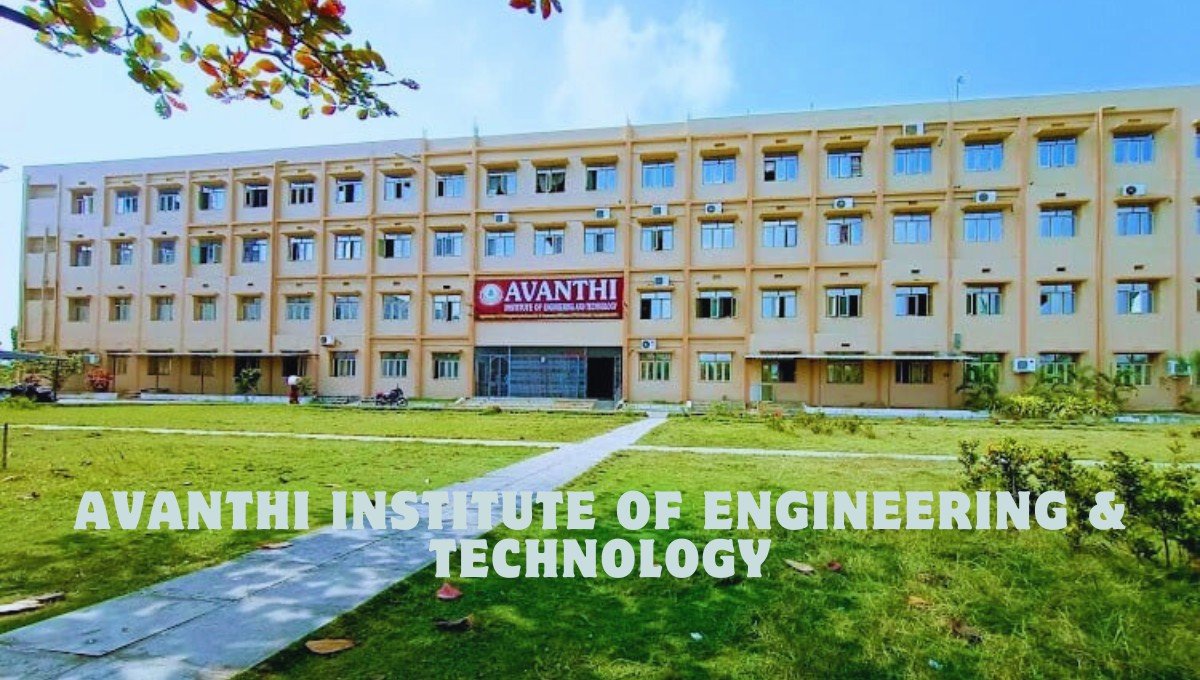Education
Prospective Students and Benefits that Islamic Schools Bring About to the Next Generation

Background To meet the emerging diverse needs of society, Islamic schools are a center for direction focusing on developing cherishable character, collection of moral and ethical values in the spirit of Islam, and an academically sound generation.
These institutions rely on academics, stress character building, Islamic values, and Qur’anic education. This article underlines the significance and importance of Islamic schools and why they are the centerpiece of the future for the holistic development of our children.
Table of Contents
Five questions to answer to identify what makes an Islamic school unique.
1. Comprehensive Education
Islamic schools offer academic subjects based on the Islamic education study pattern. Students study mathematics, science, and English, memorizing the Quran, Studying its meanings, and learning the biography of the Prophet. This two-fold goal enables children to succeed academically in secular subjects while nurturing their spiritual lives.
2. Strong Moral Foundations
Thus, moral values and ethics are the focal points of Islamic schools. Students are trained to be honest, kind, respectful, and humble so that, after completing their studies, they will be responsible citizens of the country and good Muslims.
3. Safety Promotion
Through affiliation, Islamic schools give numerous members a place to establish identities. This policy guarantees that students are comfortable practicing matters of faith, wearing Islamic dress codes, and performing religious duties without prejudice.
Advantages of Putting Your Child in an Islamic School
1. Intensification of Islamicness
Living in a multicultural society, it is challenging to preserve the Islamic image. Strong impressions of faith and identity are developed at Islamic schools so students can come to terms with the rapid world change while remaining faithful to their religion.
2. Personalized Attention
Because of the small class sizes, each Islamic school offers the required self-attention, and each child needs to be allowed to achieve the best academic and spiritual results.
3. Getting Exposed to Qualified Educators
Islamic schools recruit teachers with academic backgrounds and knowledge of Islam. Teachers set a good example to emulate, encouraging students to work hard and raise the bar high.
Islamic Schools: Construction of Communities
Islamic schools are of great importance in creating social-related attachments in families. They organize events such as:
- Quran Competitions
- Eid Celebrations
- Islamishe Seminars & Wahrscheinlichkeitsrechnung Symposiums
These activities fortify students’ relationships with their parents and educators, and the entire campus community aligns with their shared values and aspirations.
Picking the Appropriate Islamic School
When selecting an Islamic school for your child, consider the following:
- Curriculum: It should also cover both academic and Islamic education, respectively.
- Qualified Staff: Higher attention should be paid to the qualifications of the teachers with references to their Islamic experience.
- Environment: Make a school tour to check the environment and structural development.
- Parental Involvement: Choose a school that encouraging parents to be more involved in their children’s learning process.
Conclusion
Islamic schools go beyond being establishments that teach students; they are pre-establishments for the future generation of Muslims. Merging academics with Islamic instruction helps these schools prepare students for a successful life while ensuring they do not lose their faith. According to Islamic schools, these are the best environments parents would wish to place their children in to help them achieve their full potential, both in this world and the hereafter.
Join an Islamic school of your choice and ideals to secure your child’s future. Together, we must raise a generation with Islamic values and spirit in every phase of life.
Education
Unlock Joseph C. Springberg Scholarship UW Madison: Your Path to Success!

Introduction
Imagine walking onto the University of Wisconsin-Madison campus, knowing that a scholarship has lightened your financial load. Sounds dreamy, right? Joseph C. Springberg Scholarship UW Madison might just make that dream come true. This scholarship helps students achieve their academic goals without the constant worry about tuition fees, giving them the freedom to focus on what really matters: learning and growing.
In this post, we’ll explore what the Joseph C. Springberg Scholarship UW Madison is, who can apply, the benefits it offers, and some tips on how to make your application stand out. Ready to start your journey towards academic success? Let’s dive in!
Table of Contents
What is the Joseph C. Springberg Scholarship UW Madison ?
Joseph C. Springberg Scholarship UW Madison is a financial aid opportunity at the University of Wisconsin-Madison, aimed at students who demonstrate both academic potential and financial need. Named in honor of Joseph C. Springberg, an advocate for accessible education, this scholarship is awarded to students who show promise and a strong desire to make the most of their education at UW Madison.
Key Details of the Scholarship:
- Eligibility: Open to UW Madison students who meet specific academic and financial criteria.
- Award Amount: Varies based on need and academic achievements.
- Application Deadline: Typically falls in early spring, so be sure to check the UW Madison website for exact dates.
- Renewable: Yes, for multiple years if students continue to meet the requirements.
This scholarship aims to support students who are passionate about their education but may need a financial boost to fully embrace their UW Madison experience.
Why Apply for the Joseph C. Springberg Scholarship UW Madison?
You may be wondering, “Why should I apply for this scholarship over others?” Well, there are some unique perks:
- Financial Relief: This scholarship can significantly reduce your tuition fees, allowing you to focus on academics rather than juggling multiple part-time jobs.
- Academic Recognition: Being awarded a scholarship is a big deal! It highlights your dedication and achievements, which can also make your resume shine for future opportunities.
- Support Network: UW Madison’s scholarship recipients often become part of a supportive community, connecting with other scholars and mentors who can help you navigate your academic journey.
How to Apply for the Joseph C. Springberg Scholarship UW Madison
Applying for the Joseph C. Springberg Scholarship UW Madison is straightforward, but it does require some careful preparation. Here’s a step-by-step guide to help you get started:
Step 1: Gather Your Documents
Before you dive into the application, make sure you have all necessary documents ready. This typically includes:
- Academic Transcripts
- Proof of Financial Need (e.g., FAFSA)
- Personal Statement detailing why you’re a strong candidate for the scholarship
Step 2: Write a Compelling Personal Statement
This is your time to shine! Be honest and heartfelt about why you’re pursuing your education, your challenges, and how this scholarship would make a difference. Remember to let your personality come through; admissions committees appreciate authenticity.
Step 3: Submit Your Application
Once you’ve double-checked everything, submit your application online through the UW Madison portal. Be sure to meet the deadline to avoid any last-minute rush.
Tips for Standing Out
With many students applying for the Joseph C. Springberg Scholarship, it’s essential to set yourself apart. Here are some quick tips to give your application that extra edge:
- Be Authentic: The committee can spot a copy-paste job from a mile away. Share your unique story and perspective.
- Show Your Passion: Explain why UW Madison is the perfect fit for you and how this scholarship will help you reach your goals.
- Proofread Carefully: Spelling mistakes or grammar errors can detract from your message. Give your application a careful once-over before hitting submit!
FAQs About the Joseph C. Springberg Scholarship
Q1: Who is eligible for the Joseph C. Springberg Scholarship?
A1: The scholarship is open to students at UW Madison who demonstrate financial need and meet academic requirements.
Q2: How much is the scholarship worth?
A2: The award amount varies based on financial need and academic performance.
Q3: Can I renew the scholarship for multiple years?
A3: Yes, as long as you continue to meet the eligibility criteria.
Q4: When is the application deadline?
A4: The deadline is typically in early spring. Check the UW Madison website for the most current information.
Q5: What makes a strong application?
A5: Authenticity, passion for your studies, and a well-written personal statement can help your application stand out.
The Joseph C. Springberg Scholarship at UW Madison could be your key to a brighter, more affordable college experience. So why wait? Start your application today and take one step closer to achieving your dreams at UW Madison.
Education
Unlock Avanthi Institute of Engineering & Technology: Top Choice for Future Engineers

When it comes to choosing the perfect engineering college, there are a lot of factors to consider. You want a place that offers quality education, modern facilities, and a supportive learning environment. The Avanthi Institute of Engineering & Technology checks all these boxes and more! If you’re aiming to become an engineer with hands-on experience and strong industry connections, this institute could be the launchpad for your future career.
Table of Contents
Why Choose Avanthi Institute of Engineering & Technology?
1. Quality Education with Practical Focus
The Avanthi Institute of Engineering & Technology offers a well-rounded education, blending theory with real-world applications. They have a team of highly qualified faculty members who bring both academic knowledge and industry experience to the table. Whether you’re studying civil, mechanical, or computer engineering, you’ll find that the curriculum is designed to provide a solid foundation in the basics while keeping up with the latest industry trends. Plus, Avanthi emphasizes practical learning, which means you won’t just be hitting the books—you’ll be engaging in hands-on projects that prepare you for the challenges of the workplace.
2. Modern Facilities and Technology
Who says engineering has to be dull? Avanthi Institute is equipped with state-of-the-art labs and workshops that make learning fun and exciting. You’ll get to work with advanced tools and technologies, from computer labs with the latest software to mechanical workshops filled with cutting-edge machinery. The institute also boasts a well-stocked library, Wi-Fi-enabled campus, and interactive classrooms that make it easy to dive deep into your studies.
3. Supportive Learning Environment
At Avanthi, you’re not just a number. The institute prioritizes a supportive and friendly atmosphere, where students feel valued and heard. The faculty and staff are approachable, offering guidance and mentorship every step of the way. They focus on the holistic development of students by encouraging participation in extracurricular activities, seminars, and workshops. This nurturing environment helps students develop not only as engineers but also as well-rounded individuals.
4. Strong Industry Connections and Placement Opportunities
One of the best parts about Avanthi Institute of Engineering & Technology is its strong links with industry leaders. The institute’s placement cell works tirelessly to ensure that students get ample opportunities to land internships and job placements with top companies. With an impressive track record of successful alumni in prestigious companies, Avanthi ensures that you have a great start to your engineering career.
5. Affordable Education with Great Value
Quality education doesn’t have to break the bank. Avanthi Institute offers a range of scholarships and financial aid options to make education accessible for everyone. The tuition fees are reasonable, and the return on investment is excellent. For the value you’re getting—quality education, industry connections, and career support—Avanthi stands out as an affordable choice for future engineers.
Life at Avanthi Institute: More Than Just Books
Avanthi Institute of Engineering & Technology believes that student life should be a balance of academics and fun. The campus hosts various events, cultural festivals, and sports activities that keep the energy alive and vibrant. Students can join clubs, participate in competitions, and enjoy a sense of community. The student council also organizes events, ensuring that everyone has the chance to relax, make friends, and build memories that last a lifetime.
Student Clubs and Organizations
From robotics to coding, there’s a club for every passion at Avanthi. These clubs not only enhance your skills but also give you the opportunity to work with like-minded individuals, fostering teamwork and innovation.
Annual Cultural Fest
The annual cultural fest is a big highlight, where students showcase their talents in dance, music, and drama. It’s a great way to unwind, have fun, and build camaraderie with your peers.
How to Apply to Avanthi Institute of Engineering & Technology
If you’re excited about joining the Avanthi family, applying is easy! The admission process is straightforward and available both online and offline. Prospective students need to meet the eligibility criteria and submit necessary documents. Keep an eye on their website for important dates, and don’t hesitate to reach out to their admissions office if you have any questions.
Final Thoughts
Choosing the right engineering college is a big decision, and Avanthi Institute of Engineering & Technology makes that choice a little easier. With its commitment to quality education, modern facilities, and a supportive environment, it’s no wonder that this institute is a top pick for aspiring engineers. So, if you’re ready to take your engineering dreams to the next level, Avanthi could be the perfect place for you.
FAQs about Avanthi Institute of Engineering & Technology
Q: What courses does Avanthi Institute offer?
A: Avanthi offers various engineering programs, including Civil, Mechanical, Electrical, and Computer Science Engineering, among others.
Q: Is there a placement cell at Avanthi?
A: Yes, Avanthi has a dedicated placement cell that helps students secure internships and job opportunities with top companies.
Q: Does Avanthi Institute provide scholarships?
A: Yes, Avanthi offers scholarships and financial aid options to eligible students, making education accessible and affordable.
With its vibrant campus life and excellent academic reputation, Avanthi Institute of Engineering & Technology truly stands out as a top choice for future engineers.
Education
Unlock Homeworkify: Revolutionizing the Way You Ace Homework

In today’s fast-paced academic world, students constantly seek innovative tools to help them stay ahead. Homeworkify has emerged as a transformative solution, reshaping how students approach and complete their assignments. Whether you’re a high school student grappling with complex algebra problems or a college-goer handling in-depth research papers, Home workify provides the resources and support needed to excel. In this article, we’ll delve into how Homeworkify is changing the game and why it has become a trusted tool for academic success.
Table of Contents
What is Homeworkify?
Homeworkify is an advanced online platform designed to help students tackle their homework more efficiently. Leveraging artificial intelligence and user-friendly interfaces, it provides step-by-step solutions, resource recommendations, and personalized assistance tailored to individual learning needs. By offering comprehensive support, Home workify ensures that students not only complete their assignments but also understand the underlying concepts.
Key Features of Home workify:
- AI-Powered Solutions: Provides instant, accurate answers to complex problems.
- Subject Diversity: Covers a wide range of subjects, including mathematics, science, literature, and more.
- User-Friendly Interface: Simple navigation that caters to students of all tech expertise levels.
- Learning Support: Encourages concept clarity with detailed explanations.
Why Homeworkify Stands Out
Unlike traditional resources, Home workify combines technology with education to deliver unparalleled benefits. Let’s explore what makes this platform a game-changer:
1. Efficiency and Speed
Time management is crucial for students juggling multiple responsibilities. Home workify provides quick solutions, enabling students to focus on understanding rather than spending hours on a single problem. This efficiency reduces stress and boosts productivity.
2. Personalized Learning Experience
With Homeworkify, every student gets a unique learning path. By analyzing user input, the platform identifies strengths and weaknesses, recommending tailored resources to enhance learning outcomes. This personalized approach ensures no student feels left behind.
3. Comprehensive Subject Coverage
From STEM subjects like physics and chemistry to humanities and language arts, Home workify’s extensive database caters to diverse academic needs. Students can access solutions and resources for virtually any topic, all in one place.
4. Affordable and Accessible
Education tools often come with hefty price tags, but Home workify breaks the mold by offering cost-effective plans and free basic features. This accessibility ensures that quality academic support is available to everyone, regardless of their financial background.
Real-World Success Stories
Case Study: Sarah’s Journey to Academic Excellence
Sarah, a high school sophomore, struggled with algebra and often felt overwhelmed by her assignments. After discovering Home workify, she was able to grasp complex equations through detailed, step-by-step explanations. Within months, Sarah’s grades improved significantly, and her confidence soared.
Expert Insight
Dr. Emily Carter, an educator with over 15 years of experience, notes, “Platforms like Homeworkify are redefining education. By merging AI with personalized learning, students gain the tools to succeed academically and build lifelong skills.”
How to Get Started with Home Workify
Getting started with Home workify is simple and hassle-free. Follow these steps to unlock its full potential:
- Sign Up: Create a free account on the Homeworkify website or app.
- Choose a Plan: Opt for a free version or explore premium plans for enhanced features.
- Input Your Query: Type or upload your homework question.
- Explore Solutions: Review step-by-step solutions, additional resources, and expert tips.
- Track Progress: Utilize the platform’s analytics to monitor improvement over time.
Homeworkify vs. Traditional Methods
| Feature | Homeworkify | Traditional Methods |
|---|---|---|
| Speed | Instant solutions | Time-consuming |
| Personalization | Tailored recommendations | One-size-fits-all approach |
| Accessibility | Online, 24/7 availability | Limited to library hours or tutors |
| Cost | Affordable/free options | Often expensive |
| Concept Clarity | Step-by-step explanations | Variable, depends on resource quality |
Conclusion
Homeworkify has undoubtedly revolutionized the way students approach their homework. By offering speed, personalization, and comprehensive support, it empowers learners to achieve academic success without the stress. Whether you’re looking to improve your grades, understand challenging concepts, or manage your time better, Home workify is your go-to solution. Start your journey with Home workify today and experience the future of education firsthand.
FAQs about Homeworkify
1. Is Homeworkify suitable for all grade levels?
Yes, It caters to students from middle school to college, covering a wide range of academic subjects and difficulty levels.
2. How accurate are the solutions provided?
It leverages advanced AI algorithms and expert inputs to ensure high accuracy. However, users are encouraged to cross-verify for critical assignments.
3. Can Homeworkify replace traditional learning methods?
While it enhances learning, it’s best used as a supplementary tool alongside traditional teaching and self-study.
-

 Games6 months ago
Games6 months agoMeerut City Satta King: Your Ultimate Guide to Winning!
-

 Blog5 months ago
Blog5 months agoThe Importance of Hiring Commercial Movers
-

 Business6 months ago
Business6 months agoDiscover Why debsllcs.org/ Is Leading in Sustainable Business Solutions
-

 Tech3 months ago
Tech3 months agoWhy SEO is No Longer Just About Rankings
-

 Tech6 months ago
Tech6 months agoHow Do I Contact Hong Kong Reverse Technology Now for Solutions?
-

 Blog6 months ago
Blog6 months agoWhy 127.0.0.1:49342 Is Causing Chaos & How to Fix It Fast
-

 Business9 months ago
Business9 months agoBreaking Down the Recruitment Process
-

 Entertainment6 months ago
Entertainment6 months agoIncestflix: Controversial Platform Raising Serious Concerns












